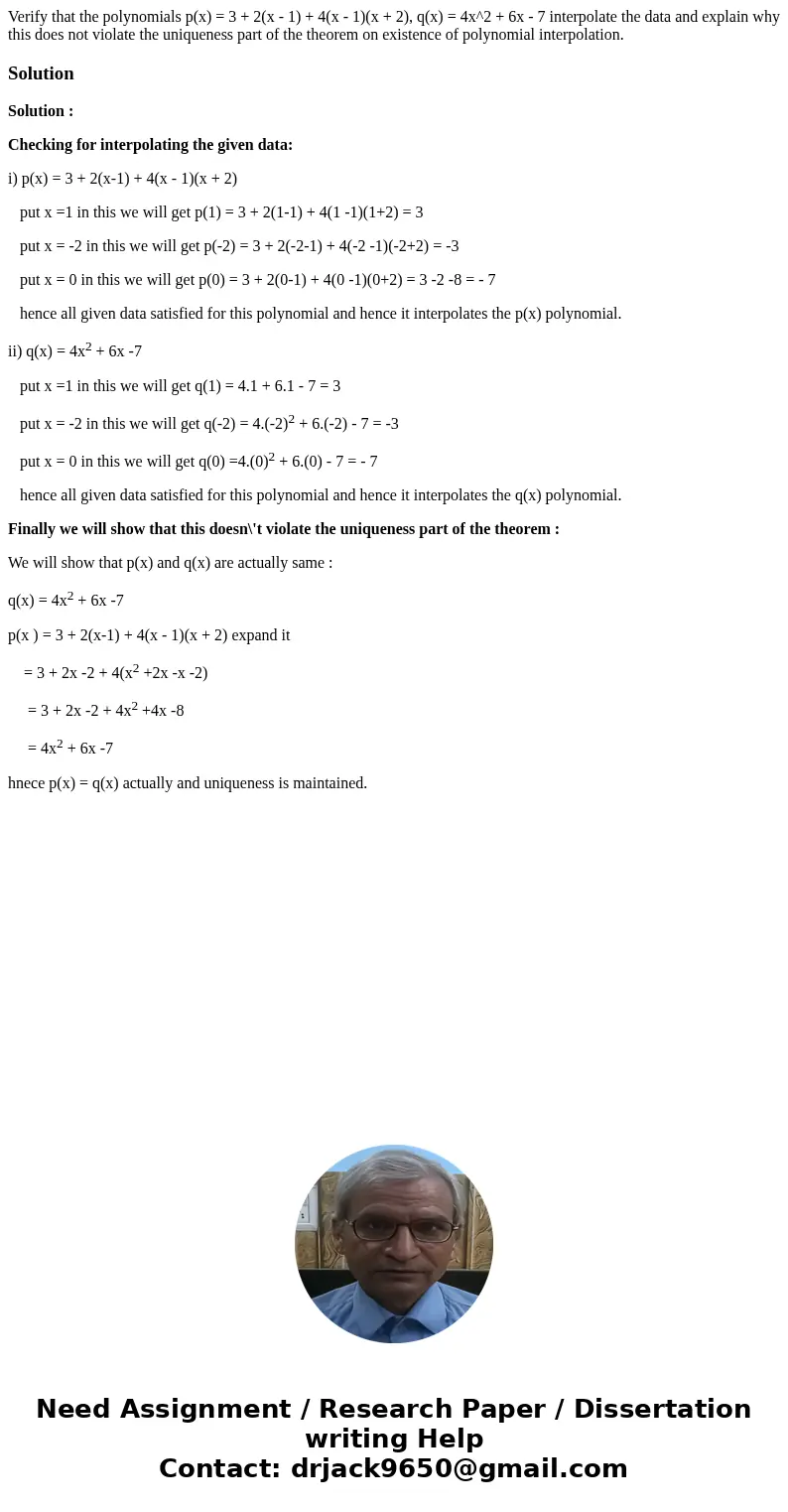Verify that the polynomials px 3 2x 1 4x 1x 2 qx 4x2
Solution
Solution :
Checking for interpolating the given data:
i) p(x) = 3 + 2(x-1) + 4(x - 1)(x + 2)
put x =1 in this we will get p(1) = 3 + 2(1-1) + 4(1 -1)(1+2) = 3
put x = -2 in this we will get p(-2) = 3 + 2(-2-1) + 4(-2 -1)(-2+2) = -3
put x = 0 in this we will get p(0) = 3 + 2(0-1) + 4(0 -1)(0+2) = 3 -2 -8 = - 7
hence all given data satisfied for this polynomial and hence it interpolates the p(x) polynomial.
ii) q(x) = 4x2 + 6x -7
put x =1 in this we will get q(1) = 4.1 + 6.1 - 7 = 3
put x = -2 in this we will get q(-2) = 4.(-2)2 + 6.(-2) - 7 = -3
put x = 0 in this we will get q(0) =4.(0)2 + 6.(0) - 7 = - 7
hence all given data satisfied for this polynomial and hence it interpolates the q(x) polynomial.
Finally we will show that this doesn\'t violate the uniqueness part of the theorem :
We will show that p(x) and q(x) are actually same :
q(x) = 4x2 + 6x -7
p(x ) = 3 + 2(x-1) + 4(x - 1)(x + 2) expand it
= 3 + 2x -2 + 4(x2 +2x -x -2)
= 3 + 2x -2 + 4x2 +4x -8
= 4x2 + 6x -7
hnece p(x) = q(x) actually and uniqueness is maintained.

 Homework Sourse
Homework Sourse